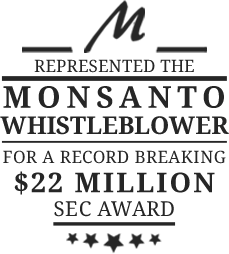








What Are Protected Disclosures?
When an employee learns of securities violations and fraud, they may be unsure of what to do next. Many fear retaliation— and rightfully so. Fear of retaliation could be the most common reason would-be whistleblowers hesitate to come forward and do what they know is the right thing.
The Whistleblower Protection Act (WPA) came to be in 1989 and provides protection against retaliation for whistleblowers who make protected disclosures. If your employer retaliates against you after making a protected disclosure, you may be able to take legal action against them.
Below, we describe in further detail what a protected disclosure is, the types of protected disclosures that are covered under the Whistleblower Protection Act and the vital services of an SEC whistleblower lawyer.
What is a Protected Disclosure?
A disclosure is the tip or information the whistleblower gives to their internal compliance program or to the U.S. Securities and Exchange Commission (SEC). But not all disclosures are protected. Having a protected disclosure means the Whistleblower Protection Act protects you from being retaliated against after coming forward.
When an employer retaliates against you, whether it be through harassment, intimidation, demotion, threatening, or termination, they can be held accountable if your disclosure was protected.
Types of Disclosures Covered Under the WPA
There are many disclosures that are protected. For instance, federal employees who report any of the following are reporting protected disclosures:
- Abuse of power or authority
- Substantial danger
- Mismanagement
- Censorship
- Gross waste of funds
In order for a whistleblower to win their claim for retaliation, they will need to prove based on a preponderance of the evidence there was a protected disclosure, the employer knew the disclosure was protected, that action took place after the disclosure was made, and there is a connection between the employee reporting the disclosure and the retaliatory action they were subjected to.
Contact a Top Whistleblower Lawyer
If you believe you are at risk for retaliation after making a protected disclosure and you need aggressive legal counsel, contact an experienced whistleblower lawyer at Meissner Associates. Schedule your confidential case evaluation when you complete the secured contact form below or call our office at 1-866-764-3100.
